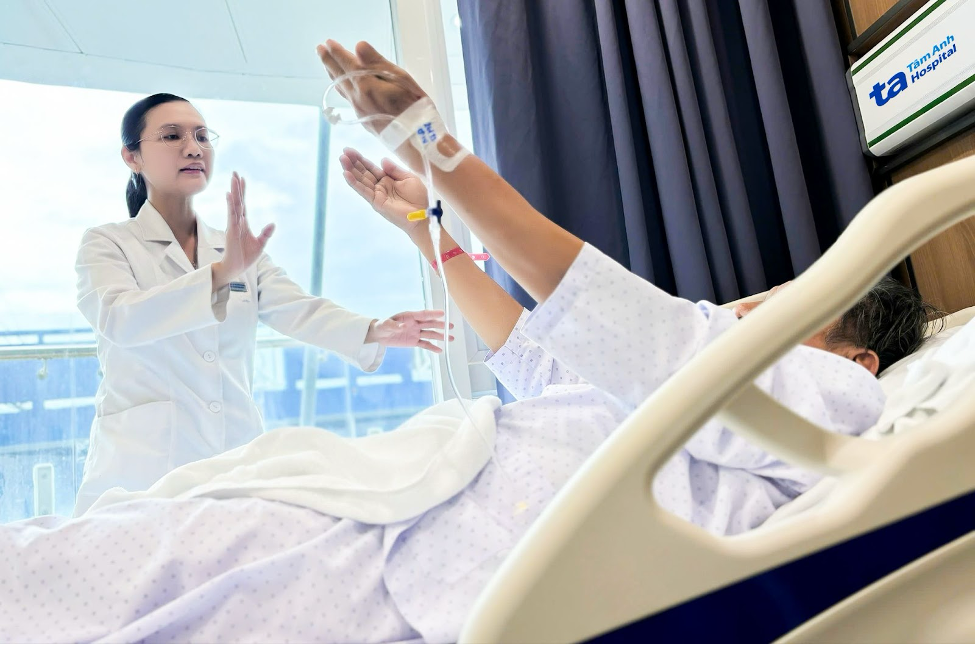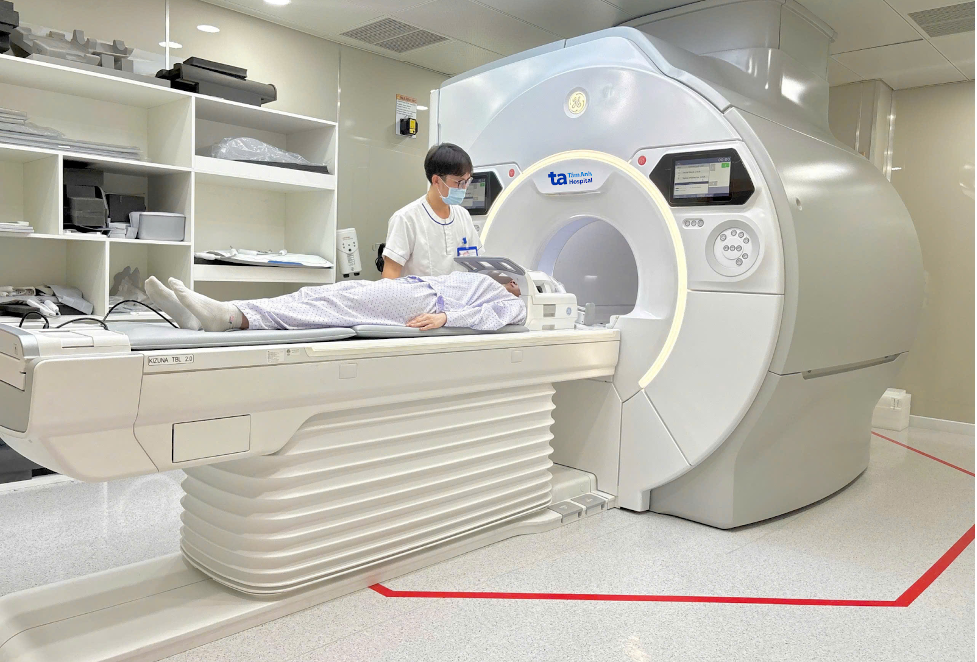Dr. Nguyen Thi Minh Duc, head of the neurology department at Tam Anh General Hospital's Neuroscience Center in Ho Chi Minh City, says the recurrence rate within the first year after a stroke is about 10% and continues to rise in subsequent years if risk factors are not well managed.
"Recurrence can happen even in patients who have fully recovered from their first stroke," Dr. Duc said, adding that subsequent strokes are often more severe than the initial one, leading to serious complications like paralysis, speech loss, or even death.
Several lifestyle and medical factors contribute to stroke recurrence.
Uncontrolled underlying health conditions are a major factor. High blood pressure, diabetes, lipid disorders, and chronic heart disease are the main culprits damaging cerebral blood vessels. Unstable blood pressure can cause blood vessels to rupture, while diabetes and high cholesterol promote atherosclerosis, leading to plaque buildup and blood clots. Unmanaged, these factors can increase the risk of stroke recurrence by 2 to 4 times. Stroke survivors should monitor their blood pressure daily, regularly check their blood sugar and cholesterol levels, and maintain an average blood sugar level (HbA1c) below 7% and LDL cholesterol below 100 mg/dL as recommended.
Discontinuing preventative treatment is another risk. After a stroke, patients are often prescribed anticoagulants or antiplatelet medications depending on the cause and as directed by their doctor. They also need to continue taking blood pressure or cholesterol-lowering medications to manage underlying conditions. However, Dr. Duc notes that many people stop taking their medication when they feel better or are worried about side effects. This leaves their cerebral blood vessels unprotected, increasing the risk of blood clots and recurrent stroke. Even if patients feel healthy, preventative medication remains crucial in preventing recurrence.
 |
A doctor examines and checks the hand movement of a patient after treatment for recurrent stroke. Photo: *Tam Anh General Hospital* |
Unhealthy habits like smoking (including e-cigarettes), drinking alcohol, using illicit substances, consuming excessive salt, unhealthy fats, or processed foods all increase the burden on the cardiovascular and nervous systems. Stroke survivors should maintain a diet rich in green vegetables, fish, and whole grains, and limit stimulants.
Being overweight or obese and lacking physical activity also contribute to the risk. Obesity, along with high blood pressure, insulin resistance, and lipid disorders, increases the risk of recurrent stroke. Dr. Duc recommends that stroke survivors maintain a healthy weight, with a BMI between 18.5 and 23, and exercise for at least 150 minutes per week with light exercises to improve blood circulation, control blood pressure, and reduce stress.
Chronic stress and lack of sleep are additional factors. According to Dr. Duc, sleeping less than 6 hours per night is also linked to a higher risk of stroke recurrence due to its impact on brain recovery. Chronic stress causes the body to continuously release cortisol, leading to metabolic disorders, increased blood pressure, and a rapid heart rate.
Stroke survivors should maintain a regular lifestyle, get 7-8 hours of sleep per night, and practice relaxation techniques such as meditation, deep breathing, and listening to calming music. If insomnia persists, consult a doctor for appropriate advice.
 |
3 Tesla MRI scan helps screen and detect early vascular abnormalities, preventing the risk of recurrent stroke. Photo: *Tam Anh General Hospital* |
Dr. Duc recommends that stroke survivors have regular check-ups and adhere to their treatment plan. Depending on the case, doctors may prescribe preventative treatment, vascular intervention, or long-term use of anticoagulants and cholesterol-lowering medications to prevent further incidents. If sudden warning signs appear, such as loss of balance, weakness on one side of the body, facial drooping, difficulty speaking, facial numbness, blurred vision, severe headache, dizziness, or vomiting, seek immediate medical attention for examination, diagnosis, and timely intervention.
Lan Anh
| Readers can submit questions about neurological diseases here for doctors to answer. |












